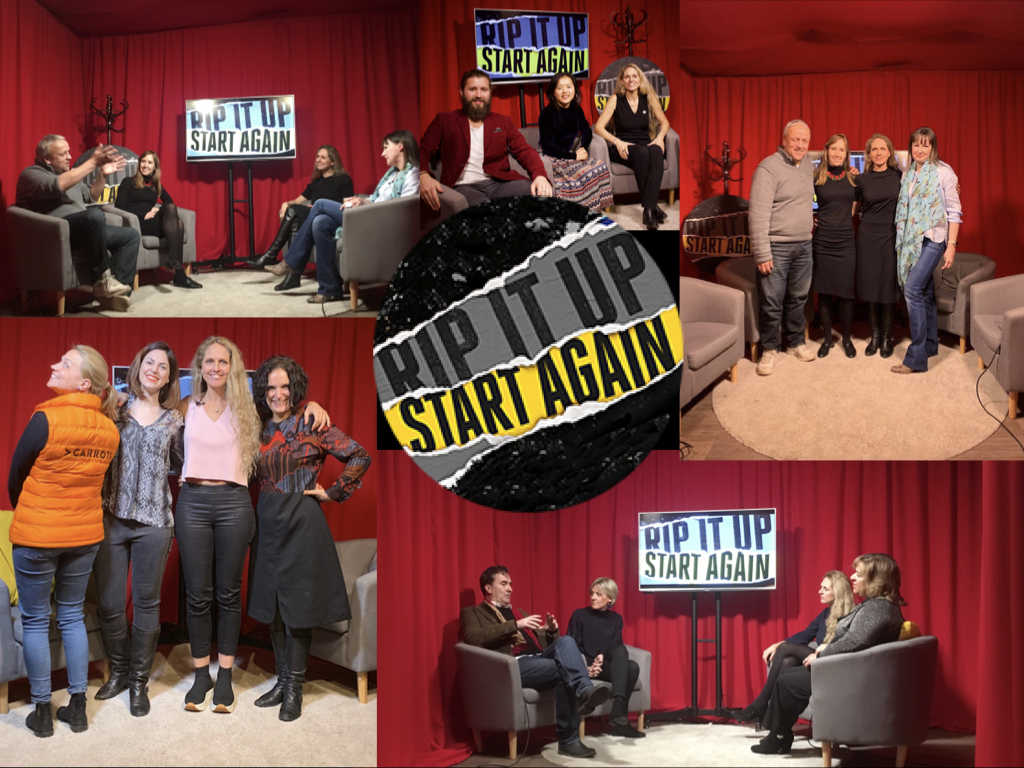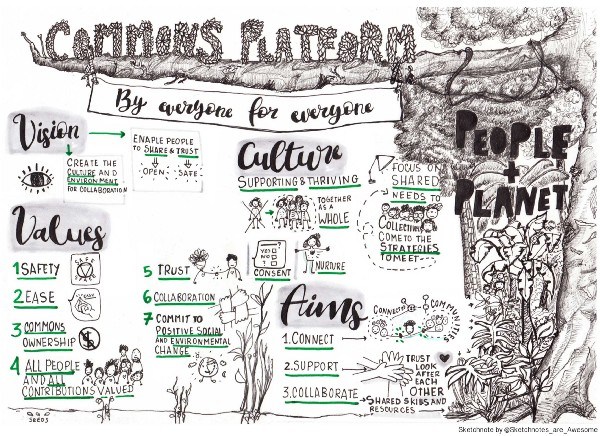WHAT DID HE SPEAK ABOUT?
Gender, unconscious bias and what it’s like to be the only man in the room. As the Co-founder of Token Man, Daniele is tackling sexism and raising awareness of inequality by interviewing CEOs about issues of diversity in the workplace. Men need to be part of this discussion to make change happen.
WHAT'S THE BACKSTORY?
In 2008, Daniele was running Creative Social and hosting events around the world for creative directors. There was an event in Florence where one of the team members took a group photograph of the attendees. The image was used by Creative Social to promote their events, but people complained that there was only one woman in the photo. In many ways, this image summarises the creative industry. Until five years ago, only three percent of creative directors in the US were female. Now in the UK, the figure is still only 14%.
As a result of these conversations, Daniele met with SheSays, a creative network for women, and went to a dinner to recruit more women for his events. That evening there were twelve women around the table and Daniele was the only man. He described the feeling of being a minority – how he had no affinity with the conversation and was even cut off mid-sentence. The experience made Daniele realise what it must feel like to be the only woman.
WHAT'S HE DOING ABOUT IT?
Daniele wanted to help CEOs understand what he had experienced. He soon met Emma Perkins and spoke to her about the issues around gender diversity. This helped him to see things from a different perspective. At one point the subject of maternity leave came up and Daniele said that people forget women make the choice to take nine months maternity. Emma replied, “You assume that’s a choice”. She didn’t judge, she asked questions.
Emma ended up joining Daniele in setting up Token Man, an initiative to give men a better understanding of the challenges women face in the creative industry. Token Man has now interviewed fifteen CEOs about the issues that surround gender diversity in an attempt to motivate them to take action within their organisations. Many businesses are now realising that the more diverse their teams, the more diverse the results – the cost of excluding women and them not succeeding in their careers is huge. And since women are already in the workplace, businesses will see these benefits immediately.
So what are the key issues? Daniele identified them as unconscious bias (which can be assessed using the Harvest Gender Career Test), parental leave (only two percent of parents in the advertising industry took shared parental leave last year), the gender pay gap (it is still widely assumed that women should stay at home to avoid childcare costs) and budgets (many businesses claim that gender equality is a top priority, yet they don’t assign any budget towards improving the situation).
But the biggest challenge is men’s resistance to change. Men generally don’t think about gender because they never had to. As Hana Tanimura from Google says: “I want a world where little girls don’t have to think about gender in the same way my brother has never had to think about gender.” Daniele admits that he was once one of those people who claimed to hire the best person for the job, but in reality hired the people who were most like him – and they tended to be men.
Daniele’s approach today couldn’t be more different. He makes a point of hiring a diverse team around him and is trying to get men into the discussion and help them understand the issue so we can make a change. No minority in history has ever affected change without the majority’s support. In many industries men are still the majority. If change is going to happen then men need to serve as champions and advocates of gender equality.
NEXT STEPS …
The Token Man interviews with CEOs have been seen 25,000 times. Often they lead to real change, in several cases, women received immediate pay increases or promotions to the board shortly after the interview. Daniele is also writing a book called Us about gender diversity. Does the world need another book on this subject? Yes, especially when it’s written from the perspective of a man who is now committed to addressing the problem.
www.tokenman.org










































